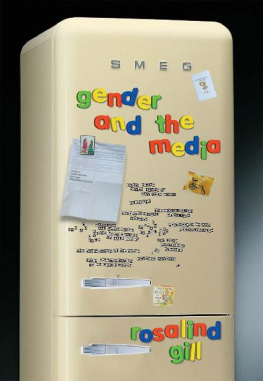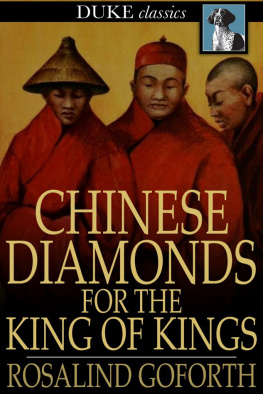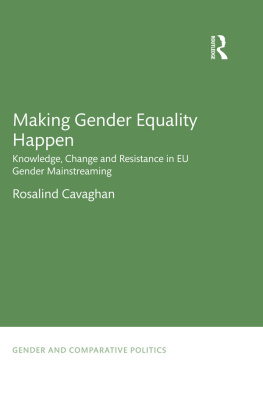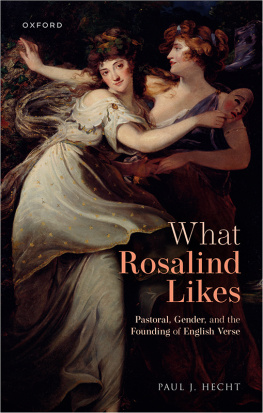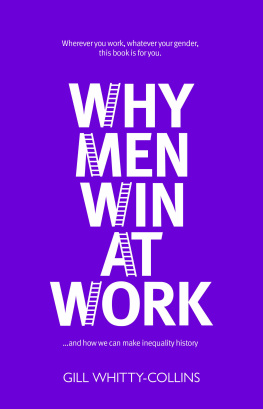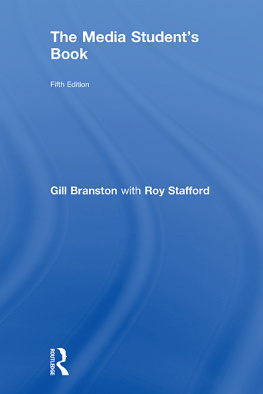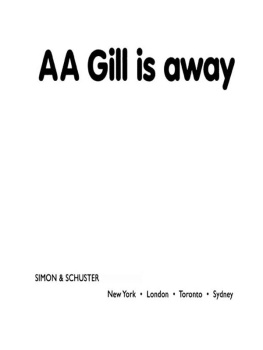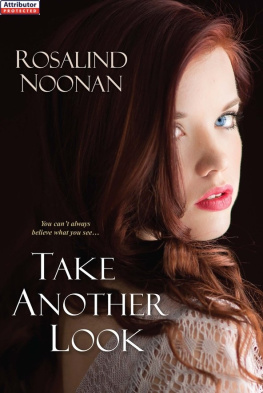Copyright Rosalind Gill 2007
The right of Rosalind Gill to be identified as Author of this Work has been asserted in accordance with the UK Copyright, Designs and Patents Act 1988.
First published in 2007 by Polity Press
Polity Press
65 Bridge Street
Cambridge CB2 1UR, UK.
Polity Press
350 Main Street
Malden, MA 02148, USA
All rights reserved. Except for the quotation of short passages for the purpose of criticism and review, no part of this publication may be reproduced, stored in a retrieval system, or transmitted, in any form or by any means, electronic, mechanical, photocopying, recording or otherwise, without the prior permission of the publisher.
ISBN-13: 978-0-7456-9898-4
A catalogue record for this book is available from the British Library.
The publisher has used its best endeavours to ensure that the URLs for external websites referred to in this book are correct and active at the time of going to press. However, the publisher has no responsibility for the websites and can make no guarantee that a site will remain live or that the content is or will remain appropriate.
Every effort has been made to trace all copyright holders, but if any have been inadvertently overlooked the publishers will be pleased to include any necessary credits in any subsequent reprint or edition.
For further information on Polity, visit our website: www.polity.co.uk
Acknowledgements
This book has taken hundreds of years to write. Well, perhaps I exaggerate a tad, but it has certainly taken much longer than it should have done. In the manner of many first books it has been through drafts and re-drafts and radical rewritings in the pursuit of some illusory (or certainly elusive) perfection. Now that Ive finished the final, imperfect version two feelings dominate: first there is puzzlement is that it ? Why on earth did it take me so long ?; and secondly there is relief relief that finally I will be able to respond to all those friendly and kindly meant inquiries about how the book is going with a conclusive its done. In short, Ill be able to go to parties again!
One of the consequences of taking so long to write a book is that the acknowledgements page reads a bit like a list of everyone who knows me. First, I would like to thank all the people who have assisted me directly with research for this book whether tracking down adverts, searching for newspaper articles, or sharing ideas about chick lit or lad mags. Special thanks to Elena Herdieckerhoff, Kamy Naficy, Karin Heisecke, Jennie Middleton, Rachel Lille, Samantha Reay, Jessica Pring Ellis, Matt Torney, Deborah Finding, Naureen Khan and Danielle Bikhazi for their invaluable contributions, both practical and intellectual.
Several people read all or parts of the manuscript in draft form and I would like to express my gratitude for their incisive and insightful comments. Special appreciation to the wonderful women in my writing group (Rachel Falmagne, Lesley Hoggart, Ann Phoenix, Bruna Seu and Merl Storr) who not only made constructive criticism such a positive experience, but also offered a different vision of academic labour and a pleasurable intellectual home in the cafes and bars of Bloomsbury. Angela McRobbie read and commented on the entire manuscript and Im grateful for her feedback and encouragement, as well as the example of her own work which I have found consistently thoughtful and inspiring. Sylvia Chants sheer energy and joie de vivre has made her a pleasure to know and Im grateful for her unstinting enthusiasm for this project, and for fitting in comments on chapters while flying between Costa Rica, Mexico, Gambia and the Philippines.
Thanks also to Sadie Wearing, Dee Amy-Chinn, Christina Scharff, Paul Stenner and Dimitris Papadopoulos for helpful comments on sections of this book.
In addition to those generous people who have read and commented on parts of the book, my acknowledgements would not be complete without an expression of gratitude to a number of other people who have helped, supported and inspired me in my academic career so far. Despite its insularity, intellectual work is always a collective project and it would be impossible to thank everyone who has sparked new ideas or provoked me to think differently. But I would like to mention the following people for particular appreciation: Michael Billig, Margaret Wetherell, Stuart Hall, Jonathan Potter, Steve Woolgar and Valerie Walkerdine. Thank you.
The LSE has been a stimulating environment in which to work, and I have benefited from its excellent library, as well as from the many outstanding international scholars who provide a feast of lectures and seminars every day of the week. Im grateful to the exceptionally interesting and talented students who have taken my Masters course in Gender and Media many of them media practitioners themselves, and all of them set to make a positive difference in the world. Ive been fortunate to have wonderful colleagues in the LSEs Gender Institute, and in the Sociology department at Goldsmiths where I worked previously. I would like to highlight Clare Hemmings, Diane Perrons, Karen Throsby, Elisabeth Kelan and Caroline Ramozonoglu for intellectual nourishment and supportive collegiality.
Polity Press has been fabulous, and I would like to thank Gill Motley and Andrea Drugan for being a real pleasure to work with, and for good-humouredly tolerating more delays than a British train service, as I went for the unofficial award of most postponed manuscript in the history of academic publishing. Thanks also, Andrea, for embracing the crazy fridge idea instead of having me committed!
Two other people deserve special mention for their absolutely crucial but invisible contributions to this project. Gabrielle Bikhazis consistently wonderful, loving care for Katarina over the past three years has freed up many of the hours Ive spent working on this book. Gaby you are a very special person and I hope you know how appreciated you are. The other behind the scenes support has come from Hazel Johnstone, departmental manager of the Gender Institute and organizer-extraordinaire. Thank you, Hazel, for help and kindnesses that are literally too numerous to mention.
Finally, I would like to thank my dear friends, my adopted family in London (and Nottingham). To Andy Pratt, Bruna Seu, Wilma Mangabeira, Paulo Wrobel, Ann Phoenix, Chris Phipps, Sylvia Chant and Veronica Forwood: thank you for everything your love of life, generosity of spirit, sense of humour, for being there during all the bad times as well as the good, and for all the wonderful conversations, delicious food and red wine we have shared and will, I hope, continue to share.
This book is dedicated to my mother, Janet Gill, and to the memory of my father, Michael Gill. Their love, care, humanity and passion for social justice has been a shining light throughout my life. It is also dedicated to Thomas and Katarina, with love.

